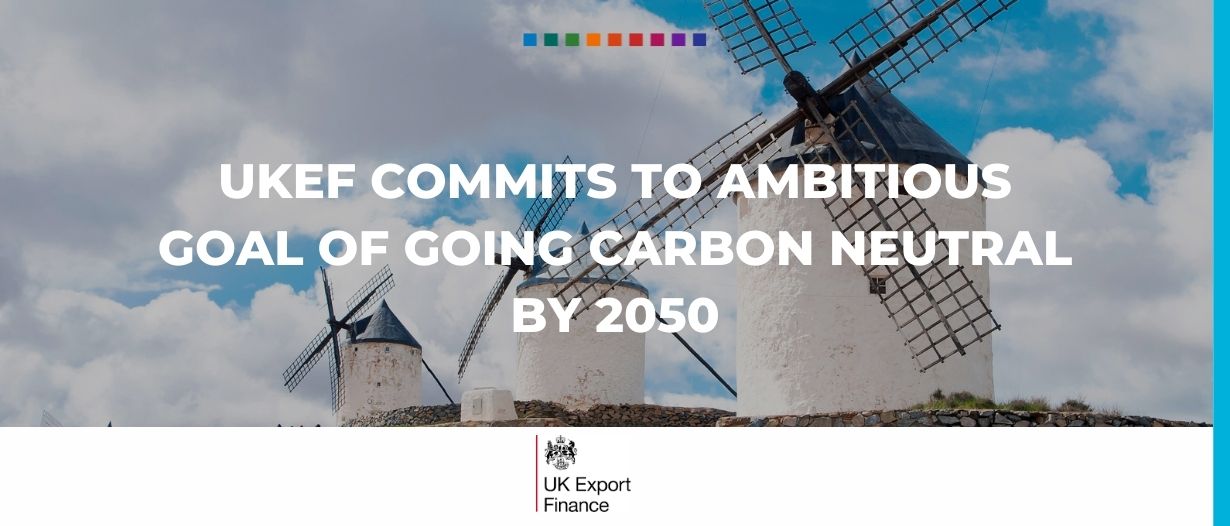UK Export Finance (UKEF), the export credit agency of the British government, has unveiled ambitious new plans to go carbon neutral by 2050.
Over the next four years, UKEF will provide more detail on emissions for its most carbon-intensive projects, establish new climate change stress-testing, and increase its financing for green projects.
As part of its newly launched Climate Change Strategy, the new target will require UKEF to increase its support for clean growth, renewables, and climate adaptation exports, while also improving its management of climate-related risks in its portfolio.
The news comes as British Prime Minister Boris Johnson tells fellow world leaders at the UN General Assembly that climate change and economic growth are not mutually exclusive trade-offs, but are instead vital for the success of the other.
UKEF’s commitment is yet another step the UK is taking to prevent global temperatures from rising above 1.5°C, and to protect planet and people from the intensifying impacts of climate change.
UKEF currently has a capacity of £50 billion to support UK exports through loans, insurance, and guarantees, issuing £12.3 billion of financial support to businesses last year.
This capacity will be entirely carbon neutral by 2050 on a net basis.
Looking ahead to COP26
In less than 50 days, the UK will host the UN Climate Change Conference COP26 in Glasgow, Scotland.
Financial institutions will have a role to play in meeting global net-zero commitments, and UKEF said is embracing its responsibility to help tackle climate change.
Anne-Marie Trevelyan, secretary of state for international trade, said UKEF’s climate plan is among the most ambitious of any export credit agency worldwide.
“It puts UK Export Finance squarely in support of green exports to tackle climate change, level up the country, and help us recover from the pandemic,” she said.
“UKEF’s net-zero pledge shows the UK’s climate leadership, and is an encouragement for other countries to follow suit.
“Its world-leading financial products help British businesses capture billions of pounds worth of foreign deals, boost green exports, and give hope that temperatures can be kept in check.”
Five pillars
UKEF’s Climate Change Strategy is based on five pillars that will help UK exporters prepare for a net-zero world. To end its contribution to climate change, UKEF will:
- Increase its support for green exports
- Reduce greenhouse gas emissions from its financial portfolio
- Improve understanding and mitigation of its climate-related financial risks
- Report against climate-related commitments, enhancing transparency and disclosure
- Lead internationally, encouraging others to follow UKEF’s lead and set ambitious climate targets
To ensure it delivers on its pledge, UKEF is setting interim milestones to decarbonise by 2050, including a new report in 2025 to detail progress towards net zero thus far.
Dr Nina Skorupska, CEO of the Association for Renewable Energy & Clean Technology (REA), said: “The REA are very pleased to see the government take a sustainability-first approach to global trade deals and emphasise the opportunities to the UK from green economy exports.
“We urge UK companies to take advantage of this support and consider exporting or international growth opportunities in the net zero sector.
“We know that renewables and clean technology can deliver great outcomes for this country and the world, from lowering emissions to improving air quality and saving money.”























